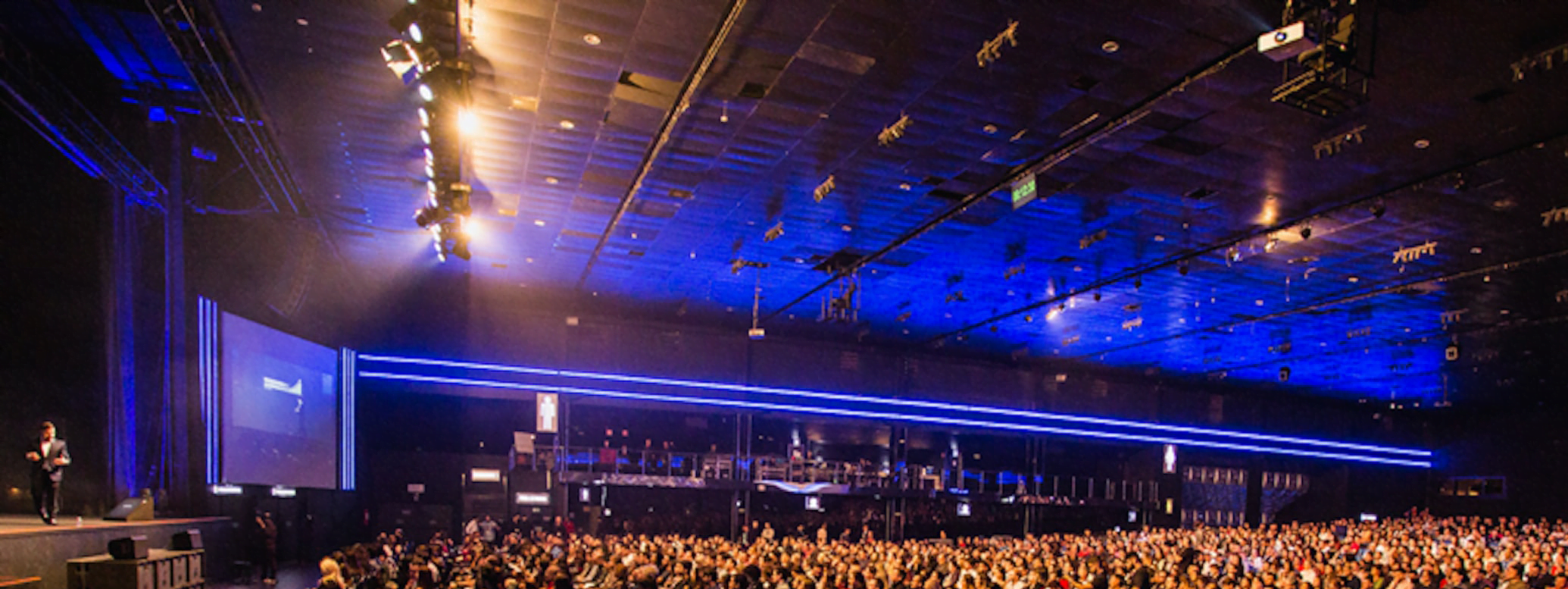Events organizers all share the same ultimate goal: bring value to participants. But, the B2B event market is vast and diversified.
Thousands of events are organized each year for the professional public, and these events vary in duration, size, programs, recurrences, and objectives.
Depending on the objectives of an event, organizational budgets can sometimes be substantial and the success indicators that have been set for an event must be measured in relation to these investments.
Take a seat as we dive into the 3 categories of players in the BtoB event organizers market who each have different contexts, objectives, and stakes for their event operations.
First category: The pros of professional tradeshows who orchestrate a marketplace
The objective: Generate a growth in income and ensure the profitability of each edition.
In general, professional fairs are first and foremost a marketplace where the purpose is to put buyers (participants) in contact with suppliers (partners or exhibitors) and to facilitate commercial transactions between them.
The B2B event is the trade show organizers’ product, and the development of this event is their business.
The shows venues -whether online or physical- are therefore designed to favor meeting spaces and exhibition areas. If there is a program consisting in conferences or speeches, this aspect will generally not be the priority of the show.
On the other hand, networking and business meetings will be key elements for the success of the event.
The choice of the business model is a strategic axis in ensuring event profitability. The main revenue comes from the sale of exhibitor/partner packages that are sometimes supplemented by ticketing for participants/visitors.
The key to success in establishing a tradeshow as the reference in a specific sector and ensuring its sustainability, lies in the organizers’ ability to bring together all major players in the industry.
Second category: Congress and summit organizers who want to spread knowledge
The objective: Facilitate exchanges between members of a community, contribute to the sharing of knowledge, new practices, regulations, etc.
This category includes professional associations, public or semi-public organizations, educational and research institutions, etc., who gather their professional or academic communities at congresses, summits, or symposiums.
These events are usually paid for by the participants, sometimes through their membership fees as members of the organizing association.
These congresses and conferences do not have a commercial purpose, and if sponsors are present, they will generally be few and chosen for their legitimacy on the substantive topics of the congress. There will also be media partners to ensure press coverage, and academic partners.
The priority of the event will of course be the program of content it offers (conferences, workshops, round tables, etc.). The emphasis will be put on the quality and reputation of the speakers.
Third category: The marketer who wants to generate leads for their brand
The objective: Strengthen a company’s reputation and to generate new business leads.
As part of their marketing plans, companies organize events whose purpose is essentially to present their strategies and their product or service offerings. Their audiences are made up of customers, prospects, and partners.
These events are designed to build customer loyalty, convince prospects, energize partners, and even impress competitors!
These marketing events are usually organized in the form of conferences, with meetings and exhibition spaces. The success of the event will depend on the quality of the content program and the relevance of the speakers, but also on the networking between participants, speakers, and partners.
The cost of the event is taken from the company’s marketing budget. It can sometimes be partly paid by the selling of partner and sponsor packages.
Brands do not have a profitability objective for their marketing event. Nevertheless, in order to be able to sell packages to partners, it is essential to address their expectations and bring them real value. And for partners, real value means qualified leads generation.
For the organizer, participation data is key to evaluate the event impact: quantitative data (number of registrants and attendees, number of meetings, number of leads, etc.) and qualitative data (profiles, purchase intention, topics of interest, etc.).
By comparing the key performance indicators for the event in relation to the allocated investment, the organizer will be able to measure its effectiveness (ROI), and thus justify the budgets for future editions.
The contexts, objectives, and stakes of these different categories of B2B event organizers can be summarized as follows:
| Players | Tradeshow organizers | Associations, institutions | Brands |
| Type of event | Professionnal tradeshows | Congresses, summits, symposiums | Conferences, product launches |
| Target Audience | Exhibitors (suppliers), participants (buyers) | Professionnal community | Clients, prospects, partners |
| Objectifs | Facilitate commercial transactions | Manage communities, Share knowledge | Increase notoriety, Generate leads |
| Recurrence | Annual, biennial | Annual | Annual ‘‘Flagship’’ , Monthly ‘’Baseline’’ |
| Budget | Profitability | Break even | Break even or investment |
| Primary source of income | Exhibitor packages | Membership fees, Participant ticketing | Partner packages |
| Secondary source of income | Participant ticketing | Sponsor packages | Participant ticketing |
A B2B event is a difficult and multi-faceted business, which requires excellent planning and well-managed operational execution.
Organizers need to clearly define their objectives, offer a quality experience to their audiences, and collect as much event data as possible, aka event intelligence, in order to measure key performance indicators.
Analyzing event-data also helps guide and adjust the preparation of future editions in order to delight targeted audiences to come.
If there is one thing to ingrain in the brain is that being able to leverage a powerful event marketing and orchestration platform is vital for an organizer to drive successful events.

